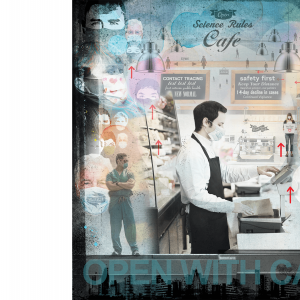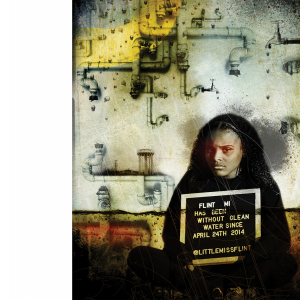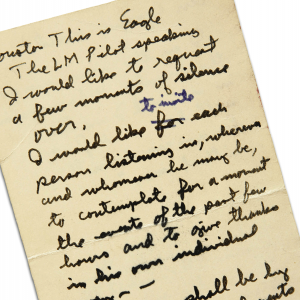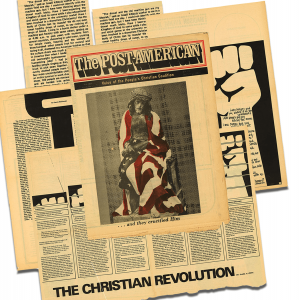
Jim Rice is a former editor of Sojourners magazine. From 1981 until his retirement in 2024, he served in a variety of roles at Sojourners, including as editor and managing editor of Sojourners magazine; director of Sojourners Outreach Ministry; and coordinator of Sojourners Peace Ministry.
Prior to joining Sojourners, Rice was an organizer for the Center for Peace Studies at Georgetown University. He was founder and co-director of Pax Christi: Washington's Peace Education Program and producer of the multimedia “Anatomy of the Nuclear Arms Race.” In addition, Rice served on the founding National Committee, Executive Committee, and Direct Action Task Force of the Nuclear Weapons Freeze Campaign, and he was treasurer of the Nuclear Weapons Education Fund. Before moving to D.C., Rice was the hunger action coordinator for the Oregon Center for Peace and Justice in Portland, Ore., and he spent two years as a member of the Jesuit Volunteer Corps. He was a member of the national advisory board for Evangelicals for Middle East Understanding and a research fellow for the New Media Project at Union Theological Seminary and Christian Theological Seminary.
Rice, a graduate of Seattle University, is a native of Richland, Wash., the bedroom community of the Hanford Nuclear Reservation. Rice was a long-time member of Sojourners Community, an intentional Christian renewal community located in inner-city Washington, D.C. He and his wife, Dawn, have two children and two grandchildren. He is a member of Hyattsville Mennonite Church outside of Washington.
Selected Sojourners articles by Jim Rice
- 'Simple is the New Chic' In John Carr's view, Pope Francis is already shaking up the Catholic Church — and the best is yet to come.
- The Party of No Compromise GOP attempts to circumvent the health-care law range from the inane to downright bullying.
- Our Dolls, Our Selves Even at their best, toys like the American Girls Dolls send a mix message.
- Future's So Bright "“Given the option of paying more for dirty power or paying less for clean power, what would you take?” (May 2013)
- 'A World Without Nuclear Weapons' The way to stop is to stop. (March 2013)
- Who Speaks for Catholics? Before the election, several bishops went so far as to threaten their parishioners with eternal damnation if they voted for Obama. (January 2013)
- Our Endorsement for President The constraints on political engagement by nonprofits can be frustrating for those committed to social change. (November 2012)
- 'A Clash of Fanaticisms' We'll never reach reconciliation between Christians and Muslims until we address root causes — and take on the haters. (November 2012)
- War Crimes and Misdemeanors Hey Pres. Obama: The Nobel Peace Prize committee is calling. They want their medal back. (August 2012)
- Fairness for Whom? Fairness matters, especially for people on society’s margins — and that conviction goes far beyond tax equity to every aspect of public policy. For people of the Book, it’s much more important than politics; it’s a matter of faith. (June 2012)
- Obesity in a World of Hunger A new definition of malnutrition is emerging, as formerly developing countries are globalized into “fast-food nation” lifestyles. (May 2012)
- Are Voter-ID Laws Racist? More than 5 million voters could be affected by new Voter-ID laws and (coincidentally?) a disproportionate number of them are people of color. (April 2012)
- Occupy the Future The Occupy movement has already established its legacy — by changing the nation's conversation about wealth inequality. (March 2012)
- 'Power to the People' Renewable energy sources aren't just safer than nuclear power — they're also cheaper. (June 2011)
- 'Tear Down This Wall' An interview with Palestinian Christian activist Sami Awad on why nonviolence is key to Middle East justice. (May 2010)
- Composting with Worms Sojourners editor Jim Rice and his family have been composting with worms for more than a decade. In this video how-to, he shares 7 steps to composting with worms. (December 2009)
- The Path to Peace in the Middle East Lessons from Gaza. (March 2009)
- The Meaning of 'Life' Once thought to be in the pocket of the Religious Right, many American evangelicals today are discovering a deeper understanding of what it means to be pro-life. With Jeannie Choi. (November 2008)
- The Roots of Justice Revival During the Second Great Awakening, the fruits of conversion included social reform. (April 2008
- Loving our Neighbors Christian-Muslim dialogue raises hope — and suspicion. (April 2008)
- Being There "God's Smuggler" Brother Andrew has an odd way of breaking down barriers between Christians and Muslims. But somehow it works. (March 2008)
- Is Nuclear Power the Answer? Proponents claim that nuclear energy is the power source of the future - clean, green, and safe. Are they right? Cover feature. (August 2007)
- A Rubicon Crossed The church consensus is solidifying on the need to save the planet. (April 2007)
- Gandhi For Today How would Mahatma Gandhi confront terrorism today? And what action would the apostle of nonviolence take in response to the wars waged in the name of anti-terrorism? A review of David Cortright’s “Gandhi and Beyond: Nonviolence for an Age of Terrorism.” (December 2006)
- Hope Amid the Ruins Out of the carnage of Middle East war, can real peace ever be achieved? (September/October 2006)
- Nonviolence is Our Only Hope In the Middle East, only justice for all is justice at all. (August 2005)
- Reagan's Legacy On mourning in America. (August 2004)
- The Burden of Truth. An interview with two former CIA analysts on the lies behind the Iraq war and the heavy weight of conscience. (November-December 2003)
- "School Choice" Passes a Test. A victory for vouchers — but who wins? (September-October 2002)
- Sins of the Fathers. The deepest guilt is the church's. (May-June 2002)
- Unfoolish Consistency. Moral principles, not politics, guide the bishops. (January-February 2001)
- Core Values. The Broetjes, owners of the largest apple orchard in Washington state, had a crazy idea — to treat their workers like people. (November-December 2000)
- A Blank Check for China? China is the current battleground — as Seattle was last fall — over the rules of global trade. (May-June 2000)
- Sandino Lives! Actually, even in Nicaragua, revolutionary fervor isn't what it used to be. (March-April 2000)
- Rome Not Quite Ready for Women Priests. (November-December 1998)
- Whatever Happened to Lt. Calley? (November-December 1998)
- A Squandered Opportunity. The biggest obstacle to Palestinian Democracy may well be the emerging state's founding father, Yasir Arafat. (July-August 1997)
- Why Play? Contemplation, freedom, and the spirit of leisure. (January-February 1997)
- Bernardin's Most Important Year. (November-December 1996)
- Beyond the Nuclear Test Ban. (November-December 1996)
- Crack, Contras, and the CIA. (November-December 1996)
- With "Friends" Like These. What to do about sleazy TV? (May-June 1996)
- Justifying the Next War. The real-world effects of the just war theory. (March-April 1996)
- Into Bosnia. Mixed motives and good fruit. (January-February 1996)
- Getting Beyond Labels. Serpents, doves, and the Religious Right. (March-April 1995)
- “Cautious Optimism” on Haiti. Reconciliation in Haiti must be preceded by repentance and rooted in truth. (November 1994)
- The Armor of Righteousness. The Christian Right makes its bid for the political mainstream. (November 1994)
- Where Angels Fear to Tread. (November 1994)
- Shifting Terrain in Korea. Without Jimmy Carter's risky pilgrimage, the world would be a more dangerous place. (September-October 1994)
- Too Many People? The unavoidable reality is that where there is severe poverty, adding more people makes the suffering worse. (August 1994)
- Seeking Common Ground on Abortion. (July 1994)
- The Last Comeback of Richard Nixon. (July 1994)
- World Bank/IMF: 50 Years Is Enough. The Bank will not change its economic model without outside pressure. (July 1994)
- When Dignity Is Assaulted. Biblically based Christians must forcefully oppose this deceptive, homophobic campaign of the Far Right. (February-March 1994)
- NAFTA's Fatal Flaws. (December 1993)
- Be Like Mike? Michael Jordan or Madonna may be worth talking about, but they arguably serve no principle beyond themselves. (September-October 1993)
- Saying No to Bigotry. Why the church must stand up for gay rights. (February-March 1993)
- Cultures in Conflict. Inner-city tensions explode on the streets of Washington, D.C. (July 1991)
- SDI-Lite: Old Wine in New Skins. (May 1991)
- On The Front Lines Of Resistance. Conscientious objectors struggle for recognition. (April 1991)
- Mistakes Were Made Will the Nuclear Industry's Post-Cold War PR Campaign Work? (January 1991)
Posts By This Author
From the Editor: September/October 2020
Voter access is a test of our faith and our democracy.
IF THE MAJORITY ruled, Stacey Abrams would be governor of Georgia. Abrams officially lost the 2018 gubernatorial race by fewer than 55,000 votes—after her opponent, Georgia secretary of state (and now governor) Brian Kemp, improperly purged more than 340,000 voters from the state’s rolls. Lawsuits also charged Kemp, who oversaw his own election, with disallowing the registrations of 50,000 Georgians—less than 10 percent of whom were white—due to minor discrepancies in the spelling of their names.
From the Editor: August 2020
“One step will not eradicate 400 years of structured racism, but that’s how every journey begins.”
WE’RE CLEARLY NOT yet in a post-pandemic world, and almost everyone seems well-disillusioned of any pretense that we live in a “post-racial” time. But, as Julie Polter explains in her cover essay, the COVID-19 pandemic—and the worldwide protests in response to the other pandemic of police brutality and systematized racism—has led to actions once thought unimaginable. From NASCAR to the Southern Baptist Convention, a surprisingly wide range of people and institutions seem suddenly aware of their own complicity in symbols and structures of injustice—and more and more white people express their recognition that police brutality isn’t, after all, the isolated behavior of a few “bad apples.”
From the Editor: July 2020
Progress doesn't happen by itself, but only by intentional choices, sustained will, and a commitment to action.
“QUARANTINE FATIGUE” IS not adequate justification for jeopardizing people’s lives. And yet, as we prepared in mid-May to go to press, states were beginning to reopen for business and pleasure—not because the coronavirus pandemic was under control, but for reasons political, economic, and even conspiratorial. While many people are legitimately concerned about getting back to work to make ends meet, others spout inane—and life-threatening—conjecture about “hoaxes,” even as tens of thousands of Americans have succumbed to COVID-19. And even worse, morally, are those—led by the president—who seem cavalier about the very real chance of secondary waves of infections, with consequent sickness and death, in their pursuit of reelection.
From the Editor: June 2020
Our politics cannot be unaffected by the truths uncovered by the pandemic.
IMMERSED IN THE enforced sabbath of shelter-in-place, it can be difficult to focus on anything other than the coronavirus and its consequences and to seek a return to “normal.” But it’s becoming clear that the pandemic is one of those rare, epoch-defining moments. When we finally come out the other side, the ways we interact with each other will likely be changed. Perhaps, more deeply aware of the brevity and fragility of life, we will take less for granted in our relationships, reassessing what is important and how we use our limited time on this earth.
From the Editor: May 2020
Tracing the roots of today's uncivil public discourse.
EVEN IF WE don’t spend our time listening to talk radio, most of us are aware that much of what passes for “discourse” on the airwaves these days is filled with vitriol and venom. But it wasn’t always that way. When I was growing up, radio commentator Paul Harvey was a regular background companion to our family’s dashed before-school breakfasts. Harvey, one of the precursors—but oh so different—to today’s shock jocks, offered a gentle heartland wisdom as he spun his daily stories, usually punctuated by a surprise ending and his signature line, “Now you know ... the rest of the story.”
From the Editor: April 2020
“Isaiah 11:6 leaders” offer hope for a different kind of future.
EARLIER THIS YEAR, President Trump dubiously proclaimed that he was committed to “conserving the majesty of God’s creation”—even while his administration continued to strip protections for clean air and water and double down on actions that will accelerate climate collapse. Clean-water activist Mari Copeny, who pointed to the dangerous lead levels in the water of hundreds of U.S. cities, rising asthma rates, and the lack of regulations on hazardous chemicals, offered an unambiguous response to Trump: “please stop lying to the world.”
From the Editor: March 2020
The people and stories we highlight in Sojourners often exemplify nonviolent action, and this issue is no exception.
POLITICAL SCIENTIST Gene Sharp, in his seminal trilogy The Politics of Nonviolent Action, listed 198 methods of nonviolence, from protest and persuasion to noncooperation and nonviolent intervention. The people we profile in Sojourners, and the stories we highlight, often exemplify these various methods, and this issue is no exception. Guatemalan poet, theologian, and peace activist Julia Esquivel used the power of transformative words to confront, demystify, and, in ways often impossible to see until years later, weaken her country’s dictatorial regime and by extension other autocratic rulers.
From the Editor: February 2020
Do systematic problems require systematic solutions?
FOR MANY PEOPLE the word “anarchism” conjures up images of wanton destructiveness and lawless, violent chaos. But, as associate editor Betsy Shirley explains in this issue, Christian anarchists aren’t about mayhem or violence. Rather, Shirley says, they look at the long-standing and deep-rooted injustices and oppressions in our society and don’t feel that small-scale reforms will be enough: Systematic problems require systematic solutions.
From the Editor: January 2020
To expand the use of fossil fuels in the context of the climate crisis is an immoral and even criminal act.
OIL PIPELINES LEAK. This fall, the Keystone Pipeline spilled almost 400,000 gallons of tar sands oil—an especially dirty fossil fuel—in its second large-scale leak in two years. The pipeline’s owner, TC Energy (née TransCanada), wants to build the Keystone XL extension despite the environmental threats.
But leaks aren’t the reason that oil pipelines are problematic. To expand the use of fossil fuels in the context of the climate crisis that has begun to destroy our planet is an immoral and even criminal act. That’s why actions such as those of the so-called “valve turners” (page 32) are not only justified but a necessary alarm clock for a still-somnolent public.
From the Editor: December 2019
Truly (and vulnerably) engaging with art requires moral courage.
INSPIRATION AND ENCOURAGEMENT can come from many places. For some, they’re found in a lifetime of work from a literary giant. For others, they emerge, unexpectedly, from an indomitable 16-year-old prophet with preternatural vision and determination. And many of us are heartened, and challenged to see differently, by the inspired imagination of artists—from a poet who urges us to “discover the truth of wonder and rejoice in the silent voice of God” (p. 39) to creatives around the world who transform the tools of trauma into affirmations of healing, redemption, and resistance.
From the Editor: November 2019
The Christian virtue of humility recognizes that our talents can be used for the greater good.
“HUMILITY” HAS OFTEN been understood as involving self-abasement, low self-regard, and meekness. Merriam-Webster’s definition of humble refers to “a spirit of deference or submission.” It’s not surprising, with those meanings in mind, that the instruction to “be humble” has been used as a tool of oppression over the years against women and marginalized people—a not-so-subtle call to “stay in your place” and not rock the boat.
From the Editor: September/October 2019
With any change comes the potential of disruption.
With any change comes the potential of disruption.
From the Editor: August 2019
Introducing new voices.
YOU'LL NOTICE when you turn the next page a new columnist for Sojourners, Rev. Adam Russell Taylor. Adam served as our senior political director more than a decade ago; for many years his focus has been on advancing justice and human rights around the world, first by co-founding Global Justice, then with the international Christian development organization World Vision, and most recently as the lead of the Faith Initiative at the World Bank.
From the Editor: July 2019
About our new look.
JESUIT SPIRITUALITY revolves around the task of finding God in all things, reflecting on the meaning of the actions and events around us, and acting in the world as “people for others.” Those principles, in many ways, speak to the vocation of Sojourners—we don’t just cover news, we seek to understand how God is working in the world.
Welcome to Post-Sexist America
The election of our first black president shone a light on racism. Is it misogyny's time next?

Everette Historical / Shutterstock
Sexism is dead. So sayeth most men, according to a national survey in August. Women, on the other hand, aren’t quite convinced.
The poll by the Pew Research Center found that 56 percent of men, and only 34 percent of women, said they thought that “sexism no longer was a barrier” to women in this country. (A pair of adjacent headlines on washingtonpost.com summed it up: “Sexism is over, according to most men” immediately preceded “It’s 2016, and women still make less for doing the same work as men.”)
So, welcome to “post-sexist” America.
I imagine it will look a lot like the “post-racist” America that Barack Obama’s election in 2008 supposedly ushered in. At that time, a few days after Obama’s historic election, The Wall Street Journal wrote that “Barack Obama’s election as the first black U.S. president promises to usher in a new era of race relations.”
The paper quoted a senior Obama adviser as saying, “People say he is a post-racial candidate. When people say that, they seem to suggest that we are beyond the issue of race, that issues of race don’t matter.” But Obama will tell you, she continued, that “he thinks race does matter.”
Turns out the president was right.
AND NOW, if the country elects its first woman president this fall, will it be seen as a sign that the country has moved into a new era regarding justice and equality for women?
The campaign itself, of course, hasn’t been encouraging. Some wonder if the level of vitriol aimed at the first woman to receive a major-party presidential nomination is due in large part to the fact that she’s, well, a woman.
Over the last 50 or 60 years, overt sexism—like overt racism—has been made less and less socially acceptable. But a look at basic statistics for, say, women in leadership positions—from CEOs at top companies (4 percent) to members of Congress (19 to 20 percent)—should dispel the delusion that we live in an egalitarian society.
Hope, Postponed
What will it take to interrupt the spiral of violence?
THE IMAGE OF Palestinian teenagers pulling out knives and attempting to stab heavily armed, flak-jacketed Israeli soldiers—or civilians, right in front of the soldiers—serves as a sad metaphor for Israel-Palestine these days. The desperation, the futility, the massive disproportionality of firepower—it’s all there.
Of course, what really happened in recent violent incidents is subject to contentious dispute, as is so much else in the region. Take, for instance, a mid-October clash in East Jerusalem. The Israeli police gave their version of events: Border police officers confronted a Palestinian man, who pulled a knife and tried to stab them. They fired at him to “neutralize” the attack, and he died of his injuries.
The Palestinian News and Information Agency’s version added significant details: The “man” killed by Israeli soldiers was actually a 16-year-old named Muta’az Owaisat, and the agency reported that the police quickly imposed a military cordon to keep journalists from the scene, near an “illegal Israeli settlement.” The report added, “Earlier Saturday, an 18-year-old Palestinian ... was shot by an Israeli setter in central Hebron, in the southern Western Bank, where he was left to die by Israeli soldiers who prevented paramedics from administering medical assistance to him.”
An anecdote in The Washington Post illustrated the senselessness of the violence: “As an atmosphere of fear and vengeance spread, a young Jewish Israeli stalked an Ikea parking lot in Kiryat Ata, a town in northern Israel, apparently looking for Arabs to attack,” the Post reported. “He repeatedly stabbed a man who turned out to be Jewish himself.”
A lot of ink is spent explaining what “caused” these latest outbreaks—it’s usually summarized as Israel’s attempts to restrict Palestinians from entering the area of East Jerusalem that houses the al-Aqsa Mosque (and the Temple Mount). But in some ways, looking for a single precipitating cause misses the point. Sometimes, such eruptions are simply a case of a people saying, “I’m not going to take this anymore.”
The Day the World Changed
Marking 70 Years Since Hiroshima

Hiroshima, Japan after the atomic bomb was dropped. Everett Historical / Shutterstock.com
The destruction of Hiroshima and Nagasaki, by any civilized standards, represented one of the moral low-points in human history. After all, by very conservative estimates, 135,000 people died from the atomic blasts—most of them civilians, the victims of the intentional targeting of cities. Think about that—these weren’t military targets, but cities full of men, women, and children, going about their lives, destroyed in seconds by the most destructive weapons ever invented.
But the point of memorializing isn’t about the past. It’s about ensuring such things happen “never again.”
Divest from Occupation: ‘We Think Israel Can Do Better'
Church bodies in the U.S. are removing financial support for the occupation of Palestinian territory—but some Jewish groups still see divestment as delegitimizing Israel itself.
WHITE HOUSE Chief of Staff Denis McDonough told an audience this spring that “an occupation that has lasted for almost 50 years must end, and the Palestinian people must have the right to live in and govern themselves in their own sovereign state.”
McDonough decried the illegal construction of settlements in Palestinian territory, under Israeli Prime Minister Benjamin Netanyahu and his predecessors, as intentionally seeking to divide Palestinian communities. He added, “like every administration since President Johnson, we will continue to oppose Israeli settlement activity since it undermines the prospects for peace.”
But many activists refuse to continue to merely decry the occupation, year after year, decade after decade, while facts on the ground worsen and a just peace grows seemingly more elusive. For these activists—and they include many U.S. churches, peace groups, and humanitarian organizations—the time has come to put teeth into efforts to end Israel’s occupation of Palestinian territory and thereby impel progress toward a just peace in the region.
The Presbyterian Church (U.S.A.) has been debating various divestment measures since 2004, and last year the denomination voted to divest from three companies that supply equipment used in the occupation of Palestinian territory.
Nuclear Weapons: Time for Abolition
According to the Vatican, “The very possession of nuclear weapons, even for purposes of deterrence, is morally problematic.”
IMAGINE IF YOU will a world in which the most destructive weapons were “conventional” explosives. These bombs, often with nicknames such as “Daisy Cutter” or “bunker buster” or even the “Mother of All Bombs,” have enormous power: The Vietnam-era Daisy Cutter, one of the largest conventional weapons ever used, was designed to flatten a forest into a helicopter landing zone with a blast equal to about 15,000 pounds of TNT.
Now imagine that someone says, “Those conventional bombs aren’t destructive enough. Let’s invent a weapon a million times more powerful, one that releases radiation that magnifies the killing effects for generations. And let’s make 16,000 of those weapons.”
A sane world would respond, “You’ve gotta be kidding.”
But in the real world, it’s no joke.
Today, 70 years after the attacks on Hiroshima and Nagasaki in 1945, the world has 16,400 nuclear weapons—93 percent of them in the arsenals of the U.S. and Russia. The first H-bomb had the force of around 10 million tons of TNT, more than a million times as powerful as the worst conventional weapons.
On a Firm Foundation
Five years after the hemisphere's most catastrophic disaster in a century, Haiti seeks to build back better.
HILDA DE BOJORQUEZ holds a set of blueprints in one hand. Her other hand is pointing. At a better future, perhaps, if things go well.
De Bojorquez is the chief engineer at this construction site in a neighborhood just outside Port-au-Prince still blemished with rubble from Haiti’s 2010 earthquake. She commands respect from the all-male crew of Haitians working at the site—she tells a group of visiting U.S. reporters that her gender has never been an issue in the male-dominated world of construction, here or in her native El Salvador.
When asked about obstacles on the project, De Bojorquez goes on for 15 minutes—she’s an engineer, after all—but the point is that they’ve tackled them, one by one, and done so the right way. She extols the importance of a solid foundation and robust retaining walls. She points to the cinder blocks and the rebar, and explains how her group had to teach a company how to provide high-quality materials, with the promise that they’d buy everything the company made. And she emphasizes that she’s there not just to oversee a number of construction projects, but to train Haitians to do it themselves the next time—and to do it right.
The steel-reinforced blocks are rising into walls that will surround a new six-room school for perhaps 200 children in this neighborhood four miles east of Port-au-Prince. The narrow site is wedged between two crumbling buildings, both showing earthquake damage. Even to an untrained eye, the differences are obvious between the fragile, deteriorating blocks next door and the solid retaining walls rising at our feet.








